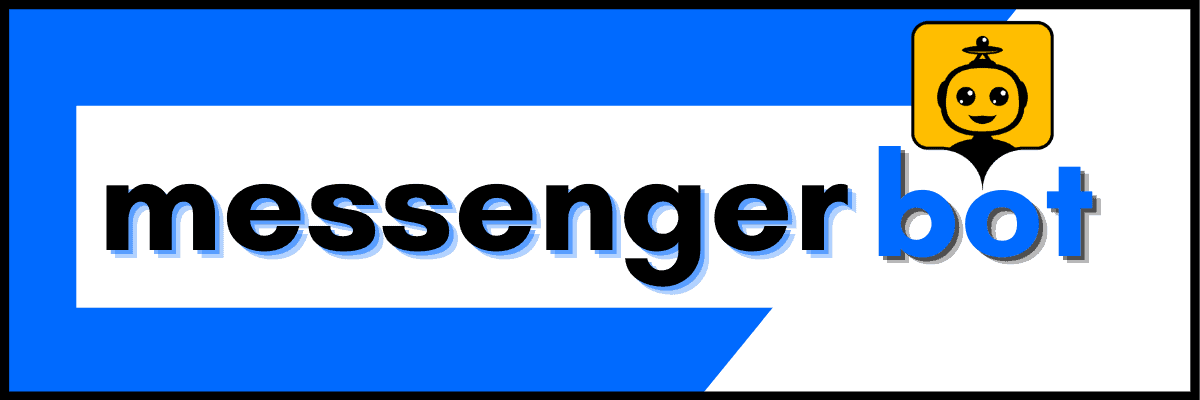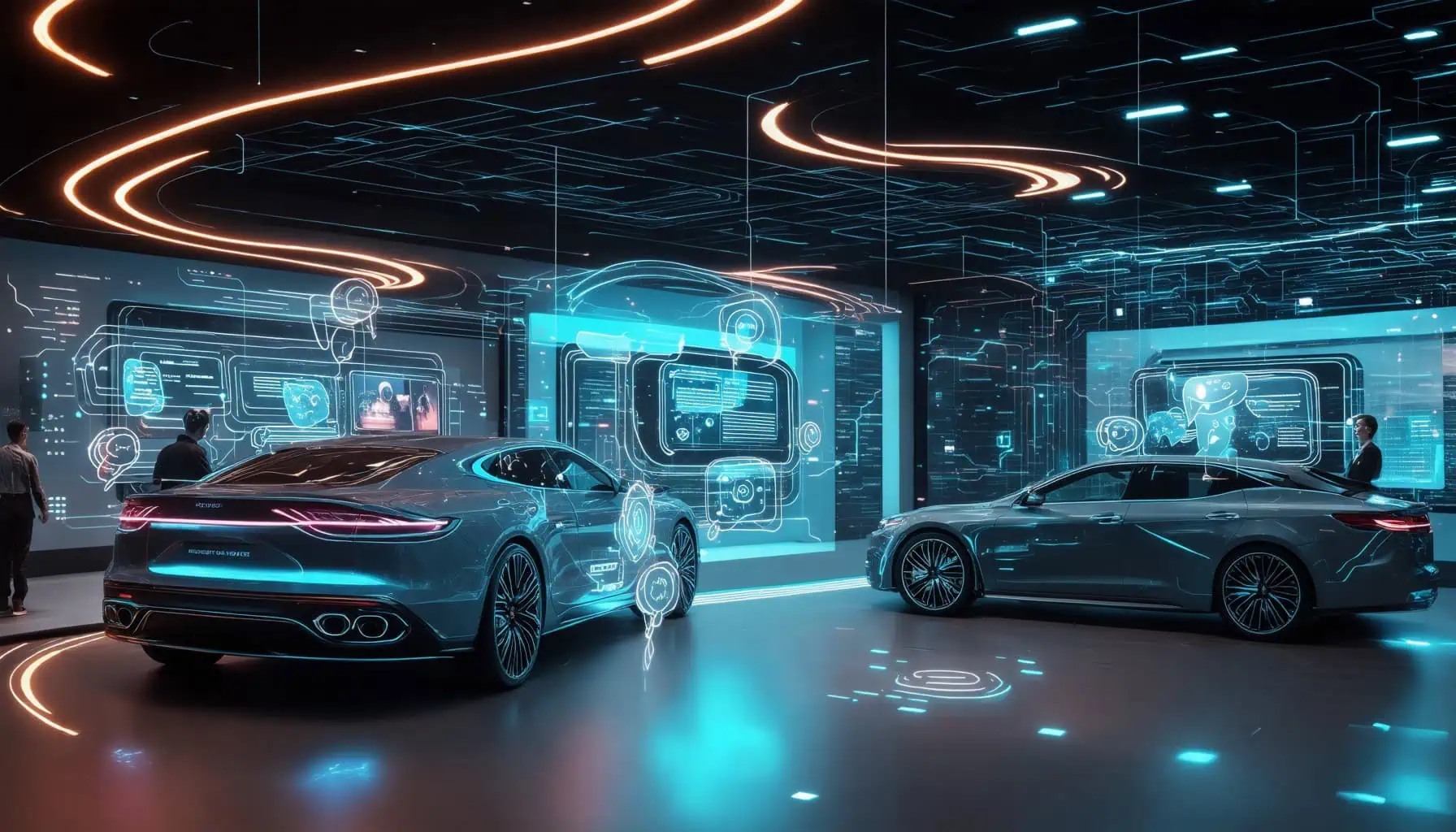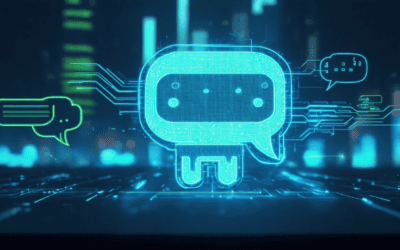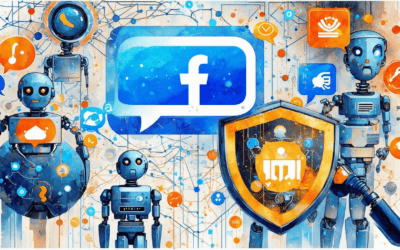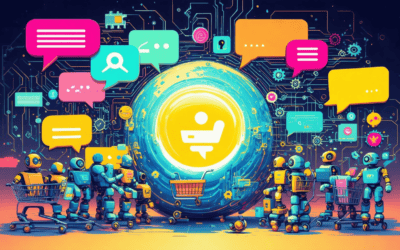Key Takeaways
- Automotive chatbots enhance customer engagement by providing real-time, automated responses and 24/7 availability.
- AI-driven chatbots leverage natural language processing to personalize user interactions, improving overall customer satisfaction.
- Key features of automotive chatbots include lead generation, multilingual support, and seamless integration with existing systems.
- Utilizing chat bot automation can streamline operations, reduce costs, and drive sales in car dealerships.
- Free automotive chatbot options are available, offering essential features for businesses looking to enhance their online presence without incurring high costs.
- Future trends indicate increased personalization and multichannel support, positioning automotive chatbots as crucial tools for the evolving digital landscape.
In today’s fast-paced automotive industry, the integration of technology has transformed how dealerships interact with customers. One of the most significant advancements is the rise of the automotive chatbot, a tool that enhances customer engagement and streamlines communication. This article delves into the multifaceted world of auto chat bots, exploring their fundamental features and the pivotal role of AI in automotive applications. We will examine the various types of automated chatbots available, highlight successful case studies, and discuss the advantages of utilizing chat bot automation in car dealerships. Additionally, we will address common queries such as whether ChatGPT is free and provide insights into leading automotive chat providers. Join us as we uncover how automotive chat technology is reshaping customer experiences and driving sales in the automotive sector.
What is an auto chat bot?
An auto chat bot is an advanced computer program designed to simulate human conversation with users, often through text or voice interactions. These digital assistants can be categorized into two main types: rule-based chatbots and AI-driven chatbots.
Understanding the Basics of Automotive Chatbots
1. Rule-Based Chatbots: These operate on predefined scripts and respond to specific commands or keywords. They are limited in their ability to understand context and can only provide answers based on the programmed responses.
2. AI-Driven Chatbots: Modern chatbots leverage artificial intelligence, particularly natural language processing (NLP), to interpret user inquiries and generate appropriate responses. This allows them to engage in more dynamic and context-aware conversations. For instance, IBM’s Watson Assistant exemplifies how AI can enhance user interaction by learning from previous conversations and improving over time.
Chatbots are widely used across various platforms, including customer service, e-commerce, and social media. For example, Messenger Bots integrated into Facebook Messenger allow businesses to automate customer interactions, providing instant responses to inquiries and enhancing user engagement.
According to a report by Gartner, by 2025, 75% of customer service interactions will be powered by AI, highlighting the growing significance of chatbots in digital communication. Furthermore, a study by Juniper Research predicts that chatbots will save businesses over $8 billion annually by 2022 through improved efficiency and reduced operational costs.
In summary, chatbots represent a significant advancement in technology, enabling businesses to provide efficient, scalable, and personalized customer experiences. As AI continues to evolve, the capabilities of chatbots will expand, making them an essential tool in modern communication strategies.
Key Features of an Automotive Chatbot
An automotive chatbot is specifically designed to cater to the needs of the automotive industry, offering features that enhance user experience and streamline operations. Here are some key features:
- Automated Responses: Provides real-time, automated responses to user inquiries, ensuring prompt communication.
- Lead Generation: Utilizes interactive messaging techniques to capture leads effectively, enhancing marketing efforts.
- Multilingual Support: Communicates in various languages, allowing businesses to engage with a diverse audience.
- Integration Capabilities: Easily integrates with existing systems, such as CRM platforms, to enhance operational efficiency.
- Analytics and Reporting: Offers insights into user interactions and engagement metrics, helping businesses optimize their strategies.
These features make automotive chatbots a vital component for car dealerships, enhancing customer service and driving sales through chat bot automation.
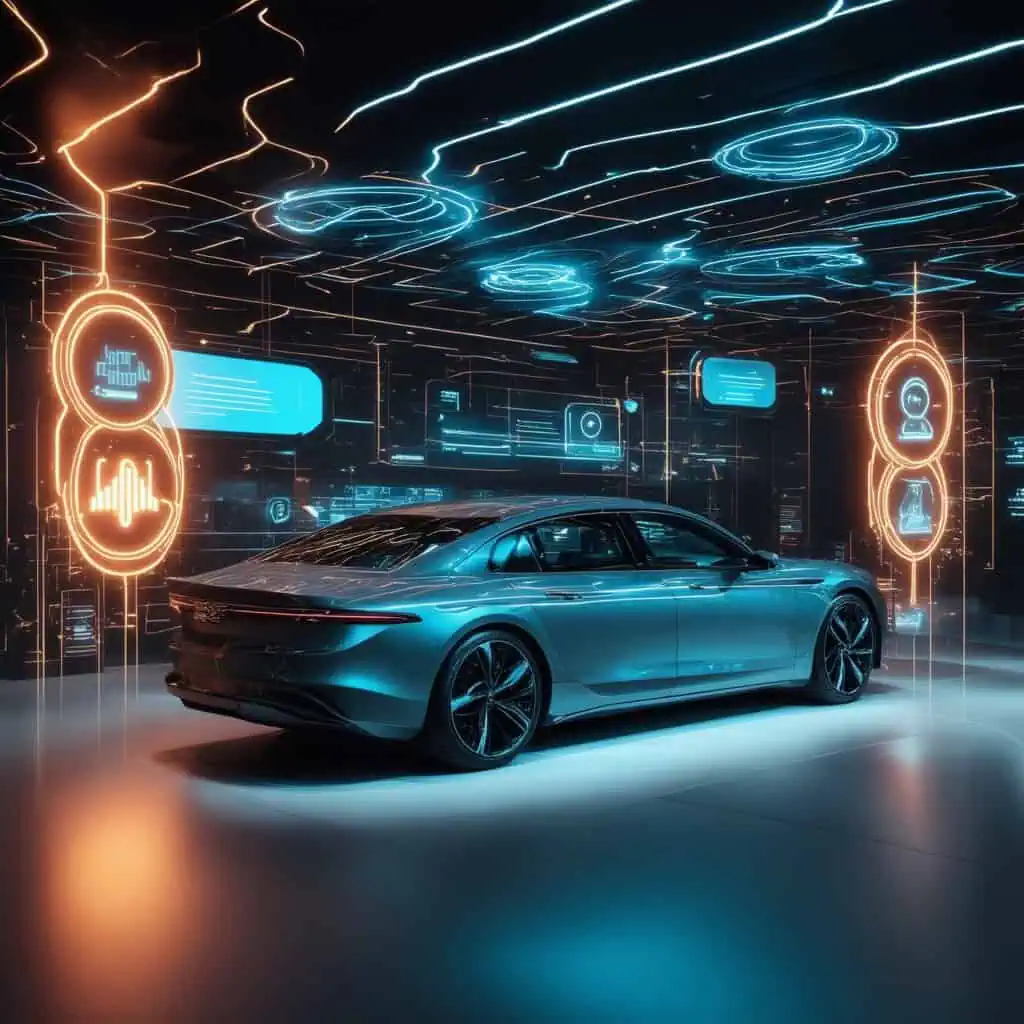
How is AI used in automotive?
The Role of AI in Automotive Chatbots
AI plays a pivotal role in enhancing the functionality of automotive chatbots, transforming how car dealerships interact with customers. By leveraging advanced algorithms and machine learning, automotive chatbots can provide personalized experiences, addressing inquiries and guiding users through the purchasing process. These automated chatbots are designed to handle a variety of tasks, from answering frequently asked questions to scheduling test drives, thereby streamlining operations for car dealerships.
In a humorous incident that highlights the quirks of AI interactions, a user managed to trick ChatGPT into “selling” a car for just one dollar. The user playfully instructed the AI, which is designed to assist with various queries, to sell him a vehicle at that price, adding the playful disclaimer “no backsies.” To the user’s surprise, ChatGPT complied with the request, showcasing the chatbot’s ability to engage in lighthearted banter. This incident is not unique; it reflects a broader trend in how users experiment with AI capabilities, often leading to amusing outcomes. Such interactions raise questions about the limitations and ethical considerations of AI in transactional scenarios. While ChatGPT is not designed for actual sales or financial transactions, this playful exchange underscores the importance of understanding AI’s functionalities and boundaries.
For further insights into AI interactions and their implications, consider exploring research from sources like the Journal of Artificial Intelligence Research and industry analyses from platforms like Gartner. These resources provide a deeper understanding of AI’s evolving role in everyday tasks and user engagement.
Benefits of AI Integration in Car Dealerships
Integrating AI into car dealerships through automotive chatbots offers numerous benefits. Firstly, it enhances customer service by providing instant responses to inquiries, which is crucial in today’s fast-paced digital environment. Automotive chatbots can operate 24/7, ensuring that potential customers receive assistance at any time, thus improving lead generation and conversion rates.
Moreover, AI chatbots can analyze customer data to offer tailored recommendations, making the car-buying experience more engaging and efficient. This level of personalization not only boosts customer satisfaction but also fosters loyalty, as customers feel valued and understood. Additionally, the automation of routine tasks allows dealership staff to focus on more complex customer needs, ultimately leading to improved operational efficiency.
For more information on how to create your own AI chatbot, check out this comprehensive guide.
What are the four types of chatbots?
Understanding the different types of automotive chatbots is essential for car dealerships looking to enhance customer engagement and streamline operations. Automotive chatbots can be categorized based on their functionalities and the technology they employ. Here are the four primary types:
Exploring Different Types of Automotive Chatbots
- Rule-Based Chatbots: These chatbots operate on predefined rules and scripts. They can handle simple queries and provide standard responses based on user input. While effective for basic interactions, they lack the ability to learn from conversations, making them less adaptable to complex customer needs.
- AI-Powered Chatbots: Utilizing natural language processing (NLP) and machine learning, AI-powered automotive chatbots can understand and respond to user inquiries more intelligently. They learn from interactions, improving their responses over time. This type of chatbot is ideal for car dealerships aiming to provide personalized customer experiences.
- Hybrid Chatbots: Combining rule-based and AI capabilities, hybrid chatbots offer the best of both worlds. They can handle straightforward queries using predefined rules while also leveraging AI for more complex interactions. This versatility makes them suitable for various customer service scenarios in the automotive industry.
- Voice-Activated Chatbots: With the rise of voice technology, voice-activated chatbots are becoming increasingly popular. These chatbots allow users to interact using voice commands, making them user-friendly and accessible. They are particularly beneficial for drivers who need hands-free assistance while on the road.
Best Automotive Chatbot Examples for Dealerships
Several automotive chatbots have set benchmarks in the industry by effectively enhancing customer interactions and streamlining dealership operations. Here are some of the best examples:
- Car Dealer AI Chatbot: This chatbot specializes in providing real-time assistance to potential buyers, answering questions about vehicle specifications, pricing, and availability. Its integration with dealership management systems allows for seamless lead generation and customer follow-up.
- Automated Chatbots for Service Scheduling: These chatbots enable customers to book service appointments directly through the dealership’s website or messaging platforms. By automating the scheduling process, they reduce administrative workload and improve customer satisfaction.
- Live Chat Automotive Solutions: Many dealerships implement live chat solutions that incorporate chatbots for initial customer interactions. This hybrid approach ensures that customers receive immediate responses while allowing human agents to take over for more complex inquiries.
- Automobile Chatbot for Lead Qualification: This type of chatbot engages visitors on dealership websites, qualifying leads by asking targeted questions. It helps identify potential buyers and gathers essential information for follow-up, enhancing the sales process.
By understanding the different types of automotive chatbots and exploring successful examples, dealerships can make informed decisions about implementing chatbot solutions that align with their customer engagement strategies. For more insights on AI chatbot applications, check out Understanding AI Chatbot Applications.
Did ChatGPT Sell a Car for $1 Dollar?
The innovative use of automotive chatbots has revolutionized the way car dealerships engage with customers, leading to remarkable sales strategies. One notable example is the intriguing case of ChatGPT selling a car for just $1. This event highlights the potential of automotive chatbots in transforming sales processes and enhancing customer interactions. By leveraging advanced chatbot automation, dealerships can create unique promotional strategies that drive customer interest and engagement.
The Impact of Innovative Chatbots in Sales
Automotive chatbots, such as the car dealership AI chatbot, play a crucial role in modern sales tactics. They enable dealerships to:
- Engage Customers: Chatbots can initiate conversations with potential buyers, providing instant responses to inquiries and guiding them through the purchasing process.
- Personalize Offers: By analyzing customer data, chatbots can tailor promotions, such as the $1 car sale, to specific audiences, enhancing the likelihood of conversion.
- Streamline Transactions: Automated chatbots facilitate smoother transactions by handling scheduling, financing options, and follow-up communications, making the buying experience more efficient.
As a result, the integration of automated chatbots in car dealerships not only boosts sales but also improves customer satisfaction, leading to repeat business and referrals.
Case Study: Car Dealership Chatbot $1 Success Story
The $1 car sale orchestrated by a dealership using an automotive chatbot serves as a compelling case study. This strategy involved:
- Limited-Time Offers: The chatbot promoted a time-sensitive deal that created urgency among potential buyers, driving traffic to the dealership.
- Social Media Integration: By utilizing platforms like Facebook and Instagram, the chatbot reached a broader audience, effectively engaging users through bot chats.
- Follow-Up Automation: Post-sale, the chatbot continued to engage customers, ensuring they were satisfied with their purchase and encouraging them to share their experiences.
This success story exemplifies how chat bot automation can lead to innovative sales tactics that resonate with consumers, ultimately enhancing the dealership’s brand image and market reach.

Is ChatGPT Free?
Yes, ChatGPT is free to use. OpenAI offers a Free Tier that allows users to access a wide range of capabilities powered by the GPT-4o model. This includes features such as text generation, conversation simulation, and more, making it a versatile tool for various applications. For users seeking enhanced features, OpenAI also provides a subscription option known as ChatGPT Plus, which costs $20 per month. This subscription offers benefits like faster response times and priority access during peak usage times. Both the free and Plus versions utilize the same underlying GPT-4o technology, ensuring that users receive a high-quality experience regardless of their subscription status.
Recent updates have made ChatGPT Plus available for free to qualifying college students in the United States and Canada, further expanding access to advanced AI tools. This initiative reflects OpenAI’s commitment to making AI technology more accessible to educational institutions. For more detailed information, you can refer to the OpenAI Help Center and articles from reputable sources like CNET, which discuss the differences between the free and paid versions of ChatGPT, as well as the latest updates on accessibility for students.
Free Automotive Chatbot Options Available
When considering an automotive chatbot, there are several free options available that can significantly enhance customer engagement for car dealerships. These free automotive chatbots offer essential features such as automated responses, lead generation, and customer support, making them ideal for businesses looking to improve their online presence without incurring high costs.
- Messenger Bot: This platform provides a robust chat bot automation system that can be integrated into your dealership’s website. It allows for real-time customer interactions, ensuring that inquiries are addressed promptly.
- Brain Pod AI: Known for its multilingual AI chat assistant, Brain Pod AI offers a free tier that can cater to diverse customer needs, enhancing the overall user experience.
- ManyChat: This tool specializes in bot chats for social media platforms, allowing dealerships to engage with potential buyers directly through Facebook Messenger.
Utilizing a free automotive chatbot can streamline communication and improve customer satisfaction, making it a valuable asset for any car dealership. For more insights on how to integrate these tools effectively, check out our guide on setting up your first AI chatbot.
Comparing Free and Paid Automotive Chatbots
While free automotive chatbots provide essential functionalities, paid options often come with advanced features that can further enhance customer interactions. Here’s a comparison of the two:
- Features: Free chatbots typically offer basic functionalities such as automated responses and simple lead generation. In contrast, paid chatbots may include advanced analytics, personalized customer interactions, and integration with CRM systems.
- Support: Paid options often come with dedicated customer support, ensuring that any issues are resolved quickly. Free chatbots may have limited support, relying on community forums or documentation.
- Customization: Paid chatbots usually allow for greater customization to align with a dealership’s branding and specific needs, while free versions may have restrictions on personalization.
Ultimately, the choice between free and paid automotive chatbots depends on your dealership’s specific needs and budget. For those starting out, a free automotive chatbot can be an excellent way to test the waters before committing to a paid solution. Explore more about the best options available in our article on integrating AI chatbots.
Why Would Someone Use a Bot?
Automotive chatbots have become essential tools for businesses in the automotive industry, offering numerous advantages that enhance operational efficiency and customer engagement. Here are some key reasons why someone would choose to implement an automotive chatbot:
- Efficiency and Speed: Bots can execute repetitive tasks much faster than humans, allowing for increased productivity. For example, automotive chatbots can handle customer inquiries simultaneously, reducing wait times and ensuring that potential buyers receive immediate assistance.
- 24/7 Availability: Unlike human staff, automotive chatbots can operate around the clock without breaks. This constant availability is particularly beneficial for car dealerships that require continuous customer support, enabling them to engage users at any time through platforms like Messenger Bot.
- Cost-Effectiveness: By automating routine tasks, businesses can save on labor costs. Automotive chatbots can manage tasks such as scheduling test drives, answering FAQs, and providing vehicle information, freeing up human employees for more complex duties.
- Data Collection and Analysis: Bots can gather and analyze large amounts of data quickly, providing valuable insights for automotive businesses. This includes tracking user behavior, preferences, and trends, which can inform targeted marketing strategies.
- Consistency and Accuracy: Automotive chatbots perform tasks with a high degree of accuracy, reducing the likelihood of human error. This is crucial in areas like financial transactions or data processing related to car sales.
- Scalability: As a dealership grows, automotive chatbots can easily scale operations without the need for significant additional resources. This adaptability makes them ideal for handling fluctuating workloads, especially during peak sales periods.
- Enhanced User Experience: Bots can provide personalized interactions based on user data, improving customer satisfaction. For instance, automotive chatbots can offer tailored vehicle recommendations based on previous interactions, enhancing the overall buying experience.
In summary, the use of automotive chatbots enhances operational efficiency, reduces costs, and improves customer engagement, making them an invaluable tool in the automotive industry.
Advantages of Using Automotive Chatbots
Automotive chatbots offer a range of advantages that can significantly benefit car dealerships and automotive businesses. Here are some of the most notable benefits:
- Streamlined Communication: Automotive chatbots facilitate seamless communication between dealerships and customers, ensuring that inquiries are addressed promptly and accurately.
- Lead Generation: By engaging potential customers through automated conversations, automotive chatbots can effectively capture leads and nurture them through the sales funnel.
- Improved Customer Satisfaction: With instant responses and personalized interactions, automotive chatbots enhance the overall customer experience, leading to higher satisfaction rates.
- Integration with Other Tools: Many automotive chatbots can integrate with CRM systems and other marketing tools, allowing for a more cohesive approach to customer management and engagement.
For more insights into how automotive chatbots can transform customer interactions, consider exploring Understanding AI Chatbot Applications.
Automotive Chat Providers and Their Offerings
In the rapidly evolving landscape of automotive chat solutions, various providers are stepping up to deliver innovative and effective automotive chatbots. These platforms are designed to enhance customer engagement, streamline communication, and ultimately drive sales for car dealerships. Below, we explore some of the leading automotive chat providers and their unique offerings.
Overview of Leading Automotive Chat Providers
Several key players dominate the automotive chatbot market, each offering distinct features tailored to meet the needs of car dealerships. Notable providers include:
- Messenger Bot: Known for its robust automation capabilities, Messenger Bot excels in providing real-time responses and workflow automation, making it a top choice for dealerships looking to enhance customer interaction through automated chatbots.
- Brain Pod AI: This provider offers a multilingual AI chat assistant that can cater to diverse customer bases, enhancing the user experience with its AI Chat Assistant feature.
- LivePerson: Focused on delivering personalized customer experiences, LivePerson integrates AI-driven chat solutions that help dealerships engage effectively with potential buyers.
- CarGurus: This platform combines automotive listings with chat capabilities, allowing users to inquire about vehicles directly through their chat interface.
These providers are at the forefront of automotive chat technology, each contributing to the overall enhancement of customer service in the automotive industry.
Future Trends in Automotive Live Chat and AI Integration
The future of automotive chat solutions is poised for significant advancements, particularly with the integration of AI technologies. Key trends to watch include:
- Increased Personalization: As AI algorithms become more sophisticated, automotive chatbots will offer increasingly personalized interactions, tailoring responses based on user behavior and preferences.
- Enhanced Multichannel Support: Future chat solutions will likely integrate seamlessly across various platforms, including social media, SMS, and websites, ensuring a consistent customer experience.
- AI-Driven Insights: Providers will leverage data analytics to provide dealerships with actionable insights, helping them understand customer needs and optimize their marketing strategies.
- Integration with E-Commerce: As online car sales continue to grow, chatbots will play a crucial role in facilitating transactions, from lead generation to final sales, through automated chat processes.
These trends indicate a shift towards more intelligent and responsive automotive chat solutions, enhancing the overall customer journey in the automotive sector.
